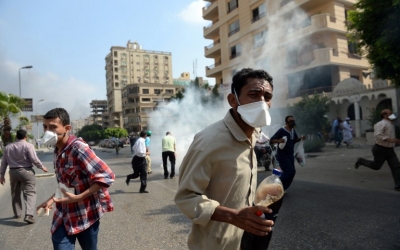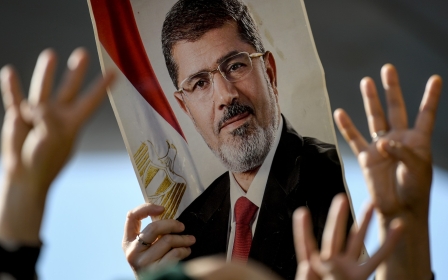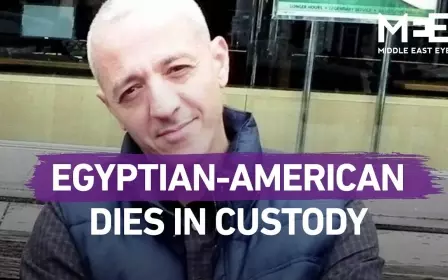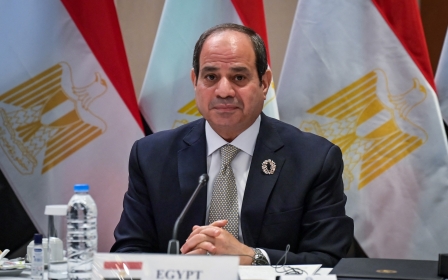Africa's top human rights authority calls on Egypt's Sisi to halt Rabaa executions
Africa's leading human rights authority has called on Egyptian President Abdel Fattah el-Sisi to suspend death penalties against 26 men who are feared to be at risk of immediate execution.
The men were among 739 defendants in a years-long mass trial, described by Amnesty International as "a parody of justice", over charges related to their participation in the 2013 sit-in at Rabaa al-Adawiya Square against the ousting of Egypt's first democratically elected president, Mohamed Morsi.
'Egypt's final phase is to try to silence opposition voices through the use of sham trials and the death penalty'
- Tayab Ali, Bindmans
During the largely peaceful protest, Egyptian security forces killed more than 800 people in what Human Rights Watch has described as the "worst single-day killing of protesters in modern history".
Egypt's highest appeals court confirmed their death penalties in June, leaving the men - who include senior Muslim Brotherhood members and a former government minister - vulnerable in a country where the execution rate has significantly increased since 2019.
But in a 3 November letter, the African Commission on Human and Peoples' Rights asked Sisi to halt their executions while it investigates a complaint brought by Ibrahim Munir and Mohamed Soudan, former senior members of the Muslim Brotherhood's Freedom and Justice Party (FJP).
New MEE newsletter: Jerusalem Dispatch
Sign up to get the latest insights and analysis on Israel-Palestine, alongside Turkey Unpacked and other MEE newsletters
"The details of the complaint...reveal that there is a risk of irreparable harm being caused if the planned death sentences were to be executed in the face of the alleged violations," Solomon Ayele Dersso, the commission chairperson, wrote to Sisi. "The African Commission respectfully requests Your Excellency to intervene in this matter."
In the 20-page complaint, the former FJP members say Egypt violated multiple articles of the African Charter on Human and Peoples’ Rights to which Cairo is a signatory.
Tayab Ali, a partner with the London law firm Bindmans and one of two lawyers working on the case, said the international community has turned a blind eye to the human rights violations committed by Egyptian authorities since the 2013 coup.
"Egypt's final phase is to try to silence opposition voices through the use of sham trials and the death penalty," he said.
"[The men] have been failed by the Egyptian legal system and the international community. Failure by the African Commission will mean that these men will lose their lives for nothing more than supporting the idea that Egypt should be a democracy."
Egypt has 15 days after receipt of the letter to confirm that it will stay the executions while the commission investigates, while lawyers for the former FJP members have 60 days to present further evidence following the complaint.
Since the 2013 military coup, Sisi has led a brutal suppression of dissent, jailing more than 60,000 activists and imposing strict censorship measures on public discourse.
Though he has consistently denied that there are political prisoners in Egypt - framing the crackdown as part of a fight against terrorism - rights groups have accused him of creating a state of fear in the country.
Middle East Eye delivers independent and unrivalled coverage and analysis of the Middle East, North Africa and beyond. To learn more about republishing this content and the associated fees, please fill out this form. More about MEE can be found here.





